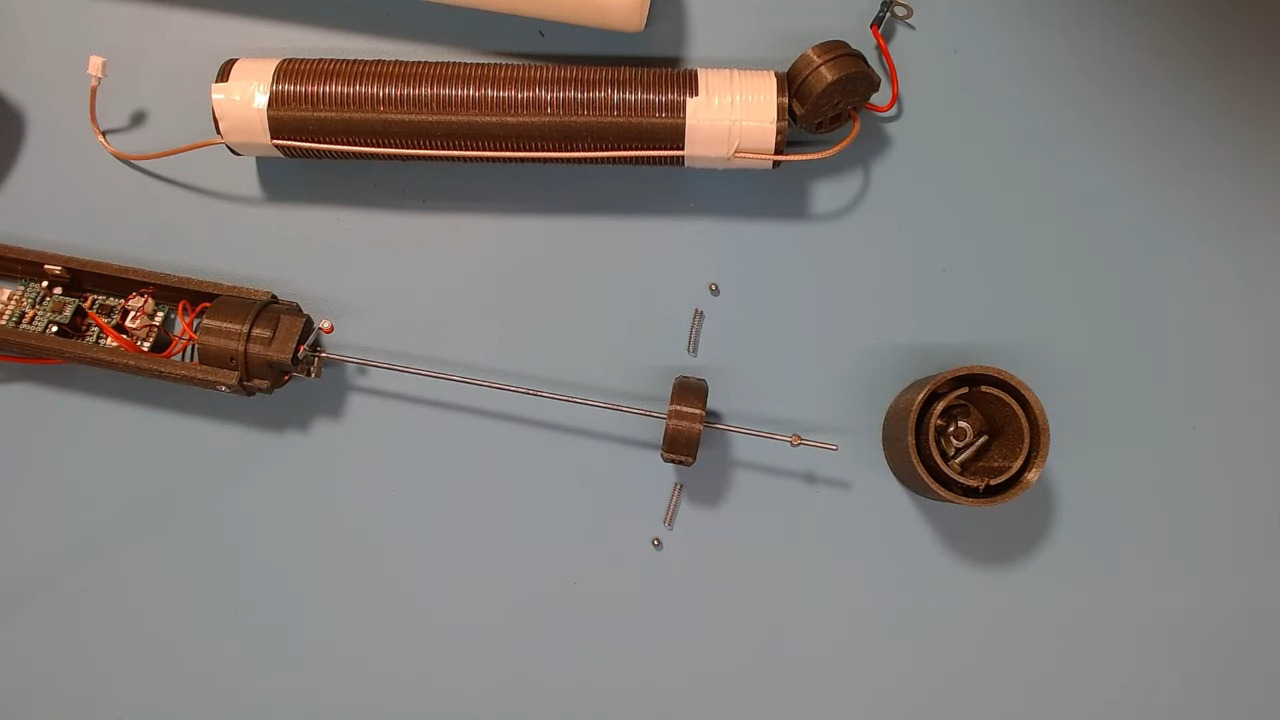Backup Posts Dev.to to SQLite
Dev.to is a great platform for writing blog articles and sharing knowledge. However, I’m concerned that important posts might be deleted at any time due to account-related issues or other reasons beyond our control. Therefore, it’s a good idea to keep backups of all the posts we create to ensure they are preserved. Good Things You don't need to worries about your post will lost You can use you data for analyst and explore you can use backup data to build another blog or for another purpose. ... Requirment First at all, you need to import the library and api able to use API, the API you can generate at Settings > Extensions > Generate a new Key Some import library for python: import requests import os import json import sqlite3 api_key = os.environ['DEVTOAPI'] Backup Acticles To Markdown def get_posts_response_data(api_key): # URL of the API endpoint url = "https://dev.to/api/articles/me/published" # Headers for the request headers = { "Content-Type": "application/json", "api-key": api_key } # Send GET request response = requests.get(url, headers=headers) # Check if request was successful if response.status_code == 200: # Parse JSON response response_data = response.json() return response_data else: # If request was unsuccessful, print error message print("Error:", response.text) def save_dev_post_to_markdown(response,markdown_file_root_path,overwrite=False): for article in response: published_at = article['published_at'] title = article['title'] full_title = "{}-{}".format(published_at.split('T')[0],title) markdown_content = article['body_markdown'] if overwrite == False and os.path.exists('{}/{}.md'.format(markdown_file_root_path,full_title)) == True: continue if os.path.exists(markdown_file_root_path) == False: os.mkdir(markdown_file_root_path) if '/' in title: title = title.replace('/', '-') with open('{}/{}.md'.format(markdown_file_root_path,full_title), 'w',encoding='utf-8') as f: f.write(markdown_content) print("File saved as {}.md".format(title)) Now you can run function to generate result markdown to storage in folder acticles # run the function response = get_posts_response_data(api_key) save_dev_post_to_markdown(response, 'acticles') This is result, markdown files generate with datetime-title and save into folder acticles created Backup Acticles to SQLite def insert_article(data,sql_path): # Connect to the SQLite database (or create it if it doesn't exist) conn = sqlite3.connect(sql_path) cursor = conn.cursor() # Create the table if it doesn't already exist cursor.execute(''' CREATE TABLE IF NOT EXISTS articles ( id INTEGER PRIMARY KEY, type_of TEXT, title TEXT, description TEXT, published BOOLEAN, published_at TEXT, slug TEXT, path TEXT, url TEXT, comments_count INTEGER, public_reactions_count INTEGER, page_views_count INTEGER, published_timestamp TEXT, body_markdown TEXT, positive_reactions_count INTEGER, cover_image TEXT, tag_list TEXT, canonical_url TEXT, reading_time_minutes INTEGER, user_name TEXT, user_username TEXT, user_github_username TEXT, user_website_url TEXT, user_profile_image TEXT ) ''') # Prepare the data to insert article = { "type_of": data.get("type_of"), "id": data.get("id"), "title": data.get("title"), "description": data.get("description"), "published": data.get("published"), "published_at": data.get("published_at"), "slug": data.get("slug"), "path": data.get("path"), "url": data.get("url"), "comments_count": data.get("comments_count"), "public_reactions_count": data.get("public_reactions_count"), "page_views_count": data.get("page_views_count"), "published_timestamp": data.get("published_timestamp"), "body_markdown": data.get("body_markdown"), "positive_reactions_count": data.get("positive_reactions_count"), "cover_image": data.get("cover_image"), "tag_list": json.dumps(data.get("tag_list", [])), # Store tags as JSON string "canonical_url": data.get("canonical_url"), "reading_time_minutes": data.get("reading_time_minutes"), "user_name": data["user"].get("name"), "user_username": data["user"].get("username"), "user_github_username": data["user"].get("github_username"), "user_website_url": data["user"].get("website_url"), "user_profile_image": data["user"].get("profile_image") } # Insert data into the table cursor.execute(''' INSER

Dev.to is a great platform for writing blog articles and sharing knowledge. However, I’m concerned that important posts might be deleted at any time due to account-related issues or other reasons beyond our control. Therefore, it’s a good idea to keep backups of all the posts we create to ensure they are preserved.
Good Things
- You don't need to worries about your post will lost
- You can use you data for analyst and explore
- you can use backup data to build another blog or for another purpose. ...
Requirment
First at all, you need to import the library and api able to use API, the API you can generate at Settings > Extensions > Generate a new Key
Some import library for python:
import requests
import os
import json
import sqlite3
api_key = os.environ['DEVTOAPI']
Backup Acticles To Markdown
def get_posts_response_data(api_key):
# URL of the API endpoint
url = "https://dev.to/api/articles/me/published"
# Headers for the request
headers = {
"Content-Type": "application/json",
"api-key": api_key
}
# Send GET request
response = requests.get(url, headers=headers)
# Check if request was successful
if response.status_code == 200:
# Parse JSON response
response_data = response.json()
return response_data
else:
# If request was unsuccessful, print error message
print("Error:", response.text)
def save_dev_post_to_markdown(response,markdown_file_root_path,overwrite=False):
for article in response:
published_at = article['published_at']
title = article['title']
full_title = "{}-{}".format(published_at.split('T')[0],title)
markdown_content = article['body_markdown']
if overwrite == False and os.path.exists('{}/{}.md'.format(markdown_file_root_path,full_title)) == True:
continue
if os.path.exists(markdown_file_root_path) == False:
os.mkdir(markdown_file_root_path)
if '/' in title:
title = title.replace('/', '-')
with open('{}/{}.md'.format(markdown_file_root_path,full_title), 'w',encoding='utf-8') as f:
f.write(markdown_content)
print("File saved as {}.md".format(title))
Now you can run function to generate result markdown to storage in folder acticles
# run the function
response = get_posts_response_data(api_key)
save_dev_post_to_markdown(response, 'acticles')
This is result, markdown files generate with datetime-title and save into folder acticles created

Backup Acticles to SQLite
def insert_article(data,sql_path):
# Connect to the SQLite database (or create it if it doesn't exist)
conn = sqlite3.connect(sql_path)
cursor = conn.cursor()
# Create the table if it doesn't already exist
cursor.execute('''
CREATE TABLE IF NOT EXISTS articles (
id INTEGER PRIMARY KEY,
type_of TEXT,
title TEXT,
description TEXT,
published BOOLEAN,
published_at TEXT,
slug TEXT,
path TEXT,
url TEXT,
comments_count INTEGER,
public_reactions_count INTEGER,
page_views_count INTEGER,
published_timestamp TEXT,
body_markdown TEXT,
positive_reactions_count INTEGER,
cover_image TEXT,
tag_list TEXT,
canonical_url TEXT,
reading_time_minutes INTEGER,
user_name TEXT,
user_username TEXT,
user_github_username TEXT,
user_website_url TEXT,
user_profile_image TEXT
)
''')
# Prepare the data to insert
article = {
"type_of": data.get("type_of"),
"id": data.get("id"),
"title": data.get("title"),
"description": data.get("description"),
"published": data.get("published"),
"published_at": data.get("published_at"),
"slug": data.get("slug"),
"path": data.get("path"),
"url": data.get("url"),
"comments_count": data.get("comments_count"),
"public_reactions_count": data.get("public_reactions_count"),
"page_views_count": data.get("page_views_count"),
"published_timestamp": data.get("published_timestamp"),
"body_markdown": data.get("body_markdown"),
"positive_reactions_count": data.get("positive_reactions_count"),
"cover_image": data.get("cover_image"),
"tag_list": json.dumps(data.get("tag_list", [])), # Store tags as JSON string
"canonical_url": data.get("canonical_url"),
"reading_time_minutes": data.get("reading_time_minutes"),
"user_name": data["user"].get("name"),
"user_username": data["user"].get("username"),
"user_github_username": data["user"].get("github_username"),
"user_website_url": data["user"].get("website_url"),
"user_profile_image": data["user"].get("profile_image")
}
# Insert data into the table
cursor.execute('''
INSERT OR REPLACE INTO articles (
id, type_of, title, description, published, published_at, slug, path, url,
comments_count, public_reactions_count, page_views_count, published_timestamp,
body_markdown, positive_reactions_count, cover_image, tag_list, canonical_url,
reading_time_minutes, user_name, user_username, user_github_username,
user_website_url, user_profile_image
) VALUES (
:id, :type_of, :title, :description, :published, :published_at, :slug, :path, :url,
:comments_count, :public_reactions_count, :page_views_count, :published_timestamp,
:body_markdown, :positive_reactions_count, :cover_image, :tag_list, :canonical_url,
:reading_time_minutes, :user_name, :user_username, :user_github_username,
:user_website_url, :user_profile_image
)
''', article)
# Commit the transaction and close the connection
conn.commit()
conn.close()
def insert_articles(response,sql_path):
for article in response:
insert_article(article,sql_path)
And you also do same with generate markdown by execute function to save to sqlite :
# Save the response data to a SQLite database
sql_path = './database/articles.db'
insert_articles(response, sql_path)
Result
Save Comments to SQLite
def create_comments_db(db_path):
# Connect to the comments database (comments.db)
conn = sqlite3.connect(db_path)
cursor = conn.cursor()
# Create the comments table if it doesn't exist
cursor.execute('''
CREATE TABLE IF NOT EXISTS comments (
id_code TEXT PRIMARY KEY,
article_id INTEGER,
created_at TEXT,
body_html TEXT,
user_name TEXT,
user_username TEXT,
user_github_username TEXT,
user_profile_image TEXT,
children TEXT,
FOREIGN KEY (article_id) REFERENCES articles (id)
)
''')
# Commit the changes and close the connection
conn.commit()
conn.close()
def insert_comment(data, article_id,sql_path):
# Connect to the comments database
conn = sqlite3.connect(sql_path)
cursor = conn.cursor()
# Prepare the data to insert
comment = {
"id_code": data.get("id_code"),
"article_id": article_id, # This links the comment to an article
"created_at": data.get("created_at"),
"body_html": data.get("body_html"),
"user_name": data["user"].get("name"),
"user_username": data["user"].get("username"),
"user_github_username": data["user"].get("github_username"),
"user_profile_image": data["user"].get("profile_image"),
"children": json.dumps(data.get("children", [])) # Store children as a JSON string
}
# Insert comment into the table
cursor.execute('''
INSERT OR REPLACE INTO comments (
id_code, article_id, created_at, body_html, user_name, user_username,
user_github_username, user_profile_image, children
) VALUES (
:id_code, :article_id, :created_at, :body_html, :user_name, :user_username,
:user_github_username, :user_profile_image, :children
)
''', comment)
# Commit the changes and close the connection
conn.commit()
conn.close()
# Assuming article_id is 2222614 (use the correct article ID)
def get_all_acticle_ids(sql_path):
conn = sqlite3.connect(sql_path)
cursor = conn.cursor()
cursor.execute('SELECT id FROM articles')
article_ids = cursor.fetchall()
conn.close()
return article_ids
def patch_insert_comments(sql_acticles_path,sql_comments_path):
article_ids = get_all_acticle_ids(sql_acticles_path)
for article_id in article_ids:
url = f'https://dev.to/api/comments?a_id={article_id[0]}'
response = requests.get(url)
comments = response.json()
for comment in comments:
insert_comment(comment, article_id[0],sql_comments_path)
Now you also able to save into sqlite by execute the funtion :
# path insert comments
sql_comments_path = './database/comments.db'
create_comments_db(sql_comments_path)
patch_insert_comments(sql_path,sql_comments_path)
So finally you can see beautiful result like this :
Cheers !!
Open Source :










/cdn.vox-cdn.com/uploads/chorus_asset/file/25829977/STK051_TIKTOKBAN_B_CVirginia_C.jpg)












